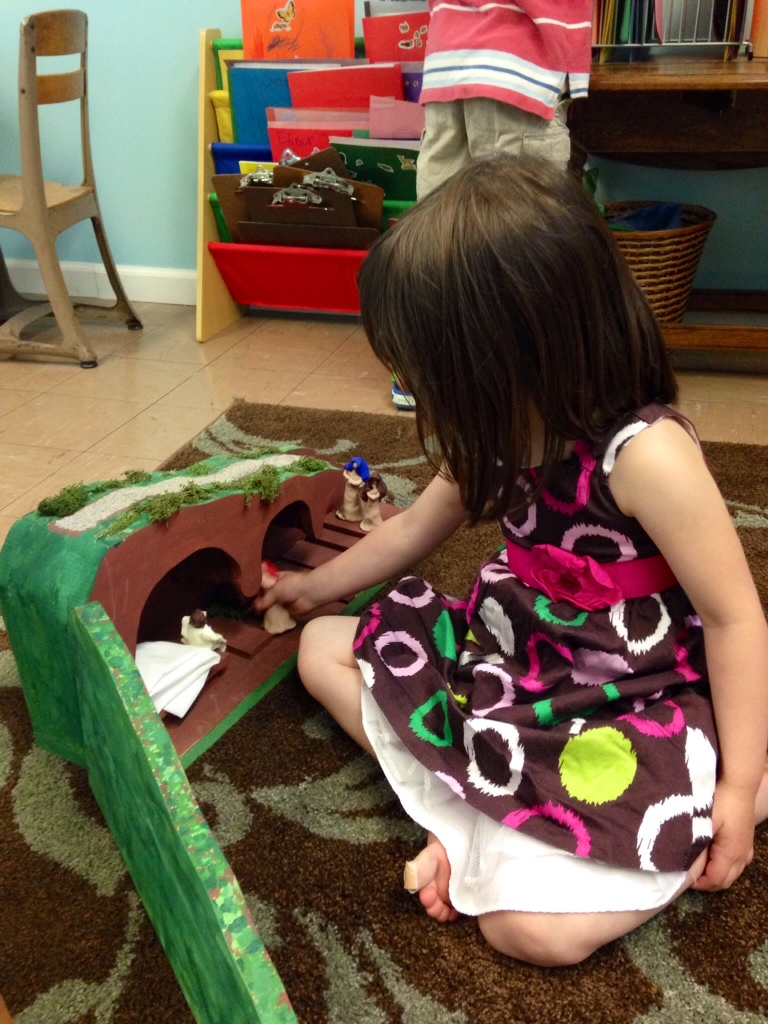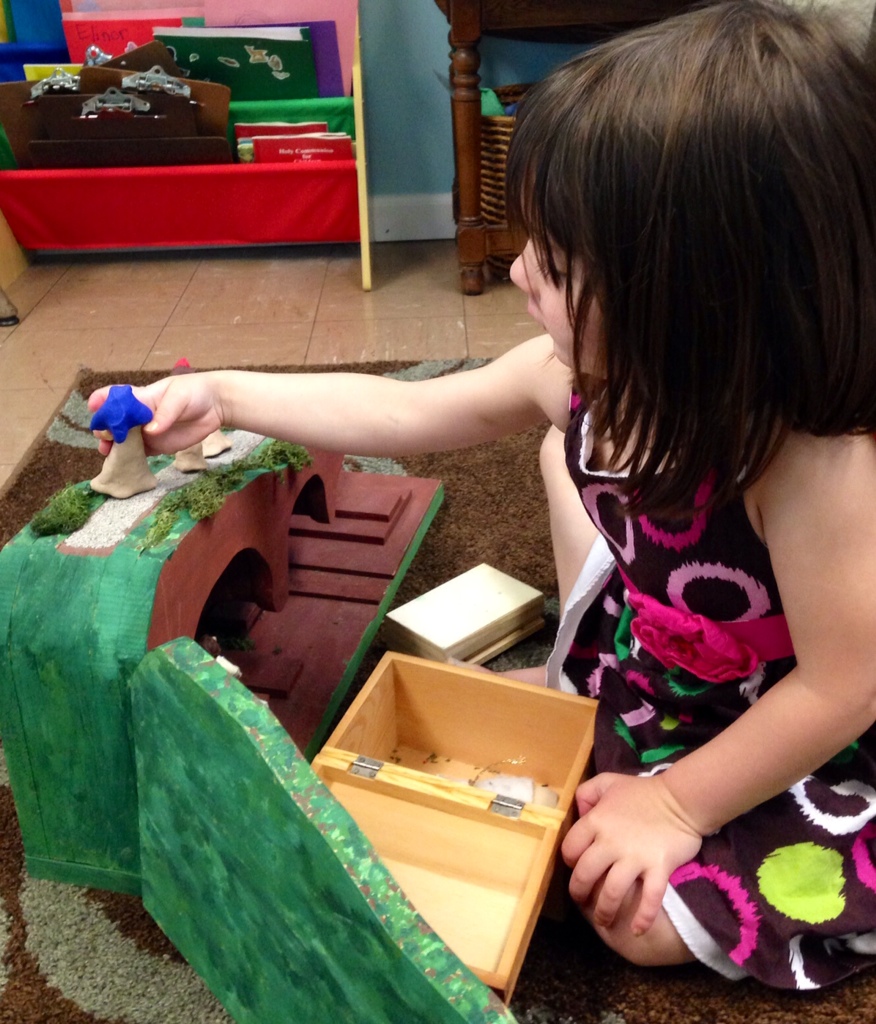I know I've blogged a lot about Marigold and her unfolding life in Catechesis of the Good Shepherd, but every week there seems to be some new interesting revelation to me. All my kids have started out in the atrium at age three, some actually at two and a half, and their faith in Jesus has been clearly markable and obvious from those first three years in that level. Elphine, for instance, so internalized the concepts–Jesus is the Good Shepherd, I am the sheep, he knows me and I know him, I listen to his voice, etc.–that there was never any question for her, or for me, of her faith in and love of Jesus. I wasn't her teacher and so I was constantly surprised by the depth of her relationship.
Evangelicals, you might know, are often worried about the salvation of their children. They want to know that the child has a living faith that includes trust in Jesus and the indwelling of the Holy Spirit. They don't want to fool themselves that their externally 'good' child who does and says all the right things will necessarily end up with what we sometimes call 'saving knowledge', that the child is not reliant on herself for her eternal destiny but on Jesus alone. Me just writing this out, and you reading it, might make all of us feel heart palpatations, both for good and for evil. Children are meant to be brought to Jesus, but sometimes, no matter our best efforts, they won't come. I know this is true for Every Christian Tradition. The most pious and solid Catholic and Orthodox and Baptist and Methodist and Reformed families sometimes have children who stray, who profess belief for a long time, but then, when the rubber meets the road, wander away, to the grief and anxiety of all.
How does a child come to a real living faith? Their own, not tagging along with someone else's. Is there a more critical question for Christians in this day and week and month and year and age? As I say in practically every blog post, the church in the west is in crisis. The landscape is strewn with empty churches of every kind. Certainly we need to bring in adults, through evangelism and discipleship, but what about the children who are hauled into the pew every week by their believing parents? How many of them will stay? What will be the harvest?
Sophia Cavaletti writes about the 'religious potential' of the child. She makes the case to the adult world of people whose faith is chosen, often intellectually based, and in most cases considered, that the youngest smallest child, every child in fact, has the capacity to know and love God. 'Of course!' every reasonable person cries. 'No kidding' says the believing mother of real children. But the church doesn't always act as if that is so. Any church that doesn't have some kind of way for children age three or even younger to hear the word of God and respond to it, doesn't really believe that children are supposed to come. They might say they do, but they can't be serious.
And I say that after watching Marigold, for a year now, develop language and faith At The Same Time. It's as if, I said to Matt, waving my hands this Sunday after church, her delayed langauge was meant to coincide with her early faith. She is grasping after words to articulate immense truth and, slowly, she is finding them. 'Jesus died so that I wouldn't have to,' she says. 'Jesus got a new body and so will I.' 'The mustard seed is so tiny and it grows into a biggest tree and the beautiful owls come and sit on it,' she says. 'Jesus brings the sheep to calm water so they can drink and he drank wine from the cup before he died when his body was broken.' She shouts over everyone else during supper when Matt asks, 'so what did you all learn in Sunday School today?' She stands up in her chair, breathless and wide eyed.
Langauge and faith should happen at the same time. The first sentences a child forms should be about the death and resurrection of Jesus. How could such an obvious fact be so surprising to me? Why am I only seeing this now? I saw it with children one through four, but I didn't really know what I was seeing. The deep restful joy of children in the presence of Jesus, that I've seen and understood. I remember that feeling as a child, of standing looking up at the sky and just knowing and loving God, of not being alone. But I don't remember the aquisition of langauge. And in the thick of nursing and laundry and exhaustion, I didn't really see what was happening with Elphine and Alouicious and Romulus (not their real names! just as a reminder! I did not really name them these things, but wouldn't it have been marvelous if I had?). I started to get an inkling with Gladys. To see it unfold with Marigold is such an extraordinary gift.
'And as for these little ones' is the title of our Children's Department Bulletin Board. What about them? Is there room for them to come? Is there a place for them? Do we have time? Let it be so. Let them come.













